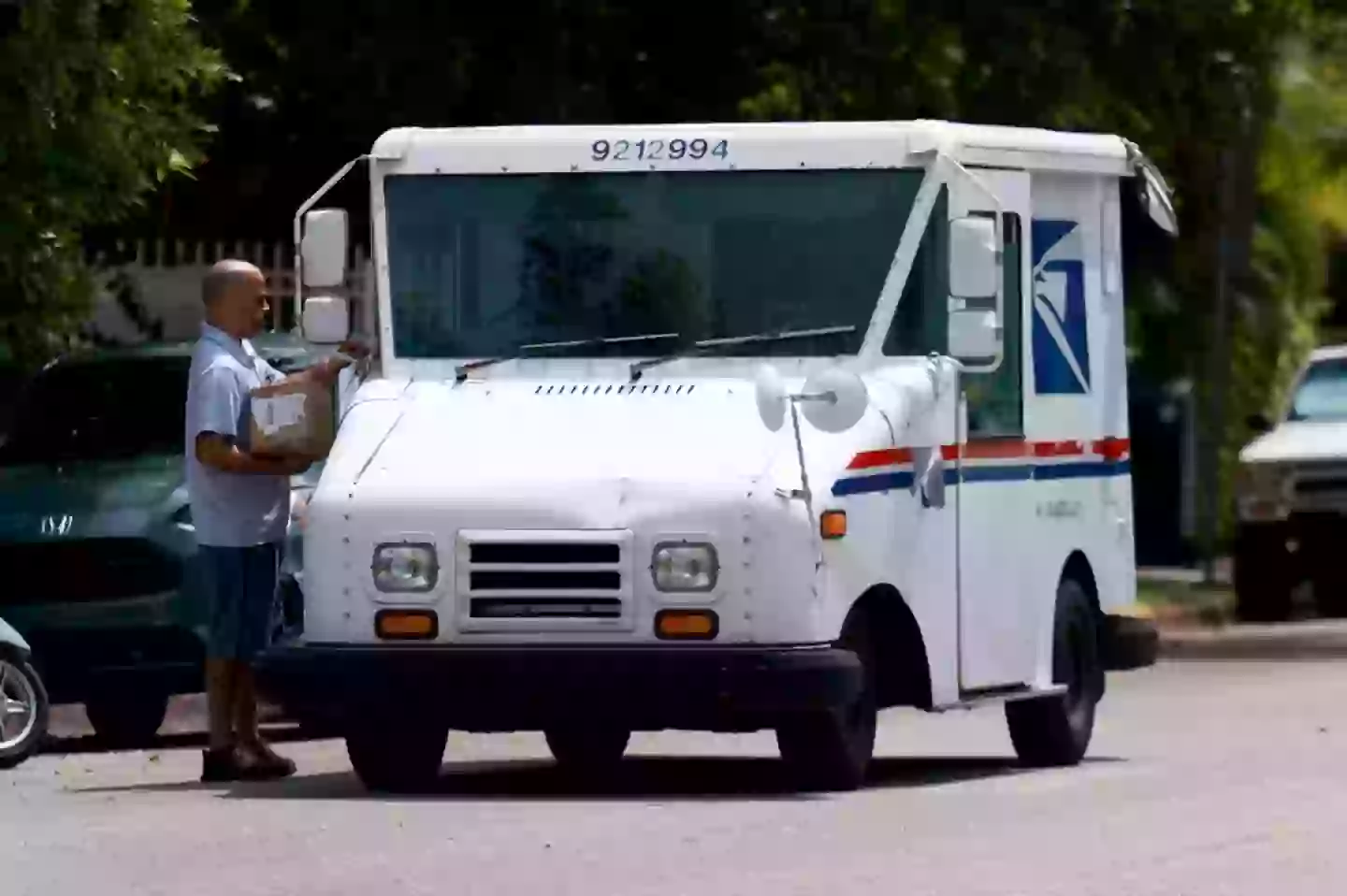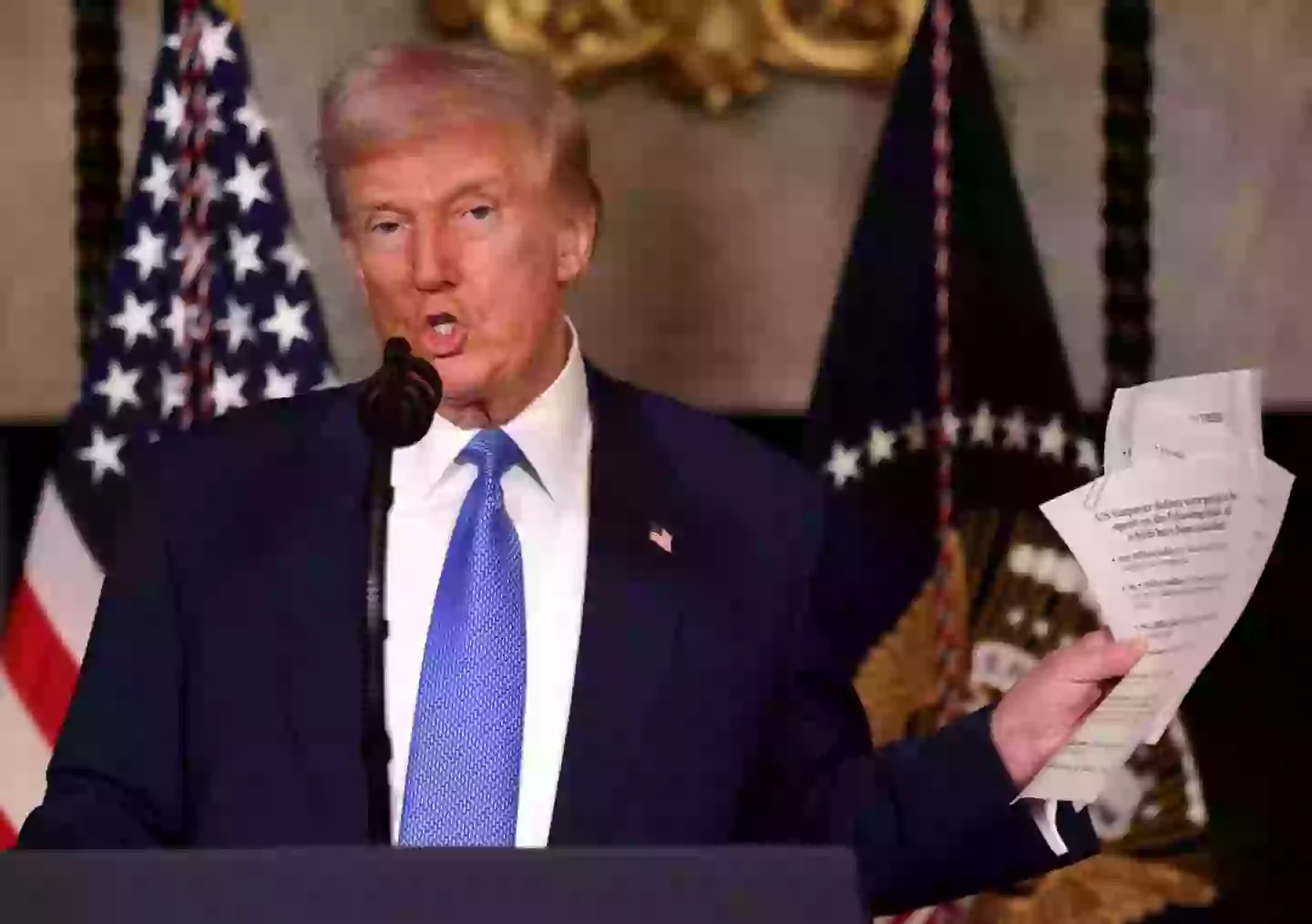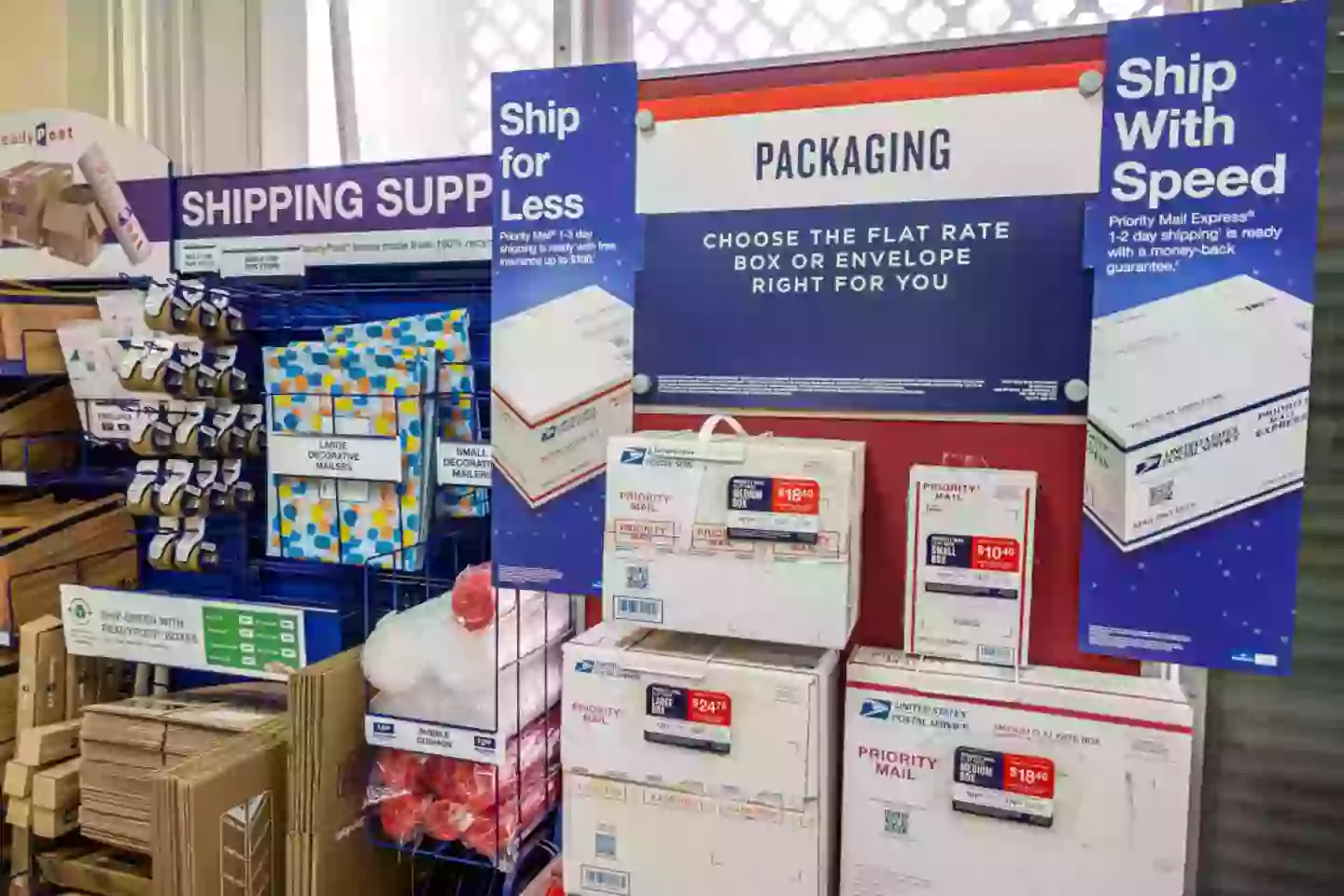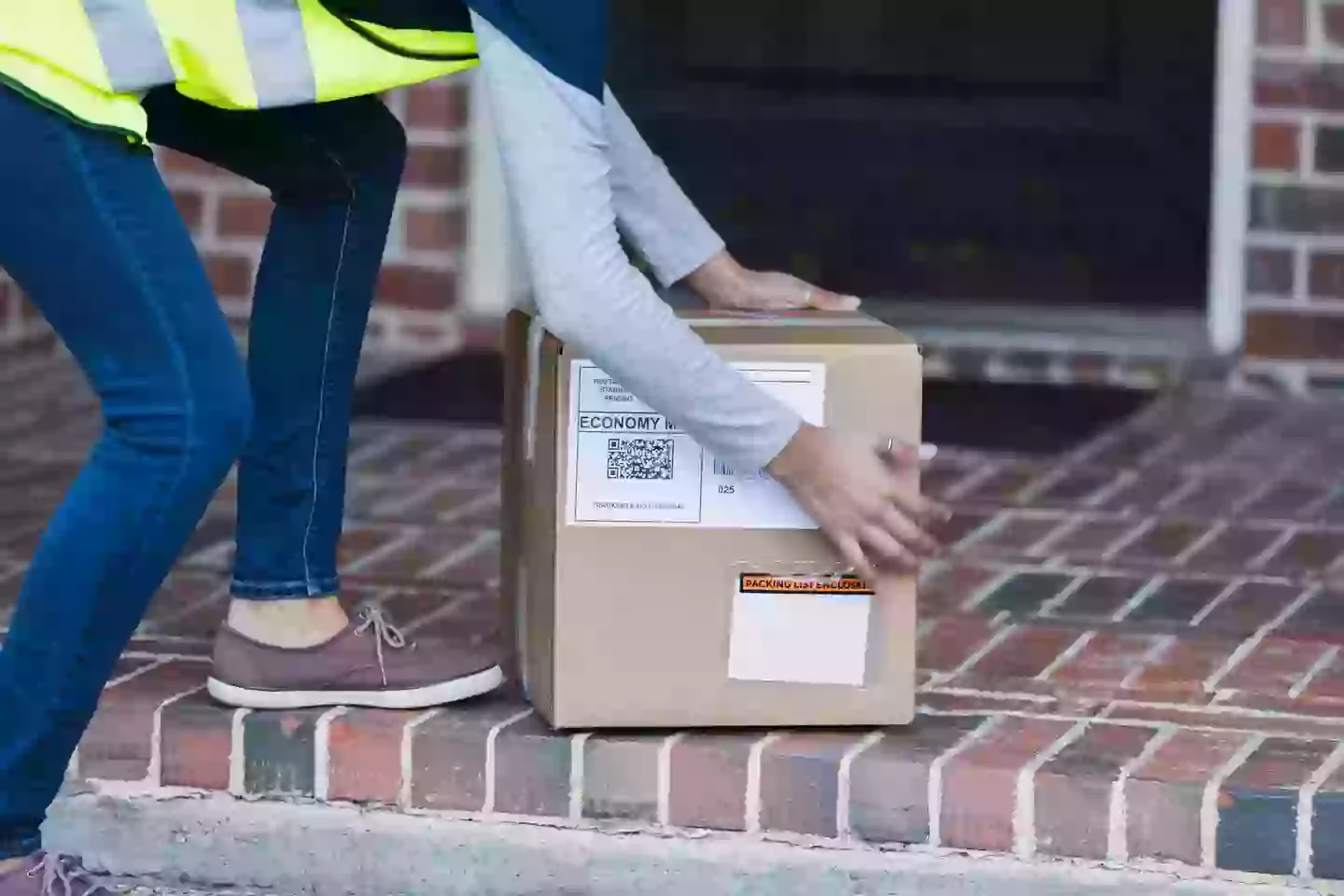
Home deliveries could soon look very different if the President signs off on his plan to shake up the US Postal Service.
Donald Trump is reportedly looking into privatizing the USPS to 'save money' in an initiative that economists warn could be 'catastrophic' if given the go-ahead.
As well as processing mail and delivery services across the US, millions of Americans in rural areas have depended on the service for everyday items, from online purchases to groceries, as well as other essentials like prescription medication, checks, and election ballets for more than 50 years.
Advert

The Postal Service fills in the gap to some communities where large delivery organizations like the UPS, FedEx and Amazon don't go to due to fuel costs, labor and/or increased distances.
Unlike these private companies, the federal service is legally obligated to deliver mail to every US zip code at reasonable costs, meaning it takes the brunt of high operating costs.
Yet the president wants to change this by watering down a privatization plan for the service, which would drastically affect customers.
Advert
In the Oval Office last Friday (21 February), Trump said: "We want to have a post office that works well and doesn’t lose massive amounts of money ... It’s just a tremendous loser for this country. Tremendous amounts of money are being lost. We think we can do something that will be very good.”
He also previously stated privatizing the USPS is 'not the worst idea'.
According to The Washington Post, Trump has hinted at disbanding its 11-member leadership board of governors and shift it under the control of the Commerce Department, which inches inching closer to privatization.

What would privatization of the USPS mean?
If Trump signs an executive order to make the change, it would mean many of those sky-high operating costs would be shouldered by residents who live in rural areas, which makes up 88 percent of all the land the USPS covers and are, interestingly, overwhelmingly (62 percent) Trump voters, reports The Independent.
Advert
However, the order would still need to be passed by Congress and the White House has reportedly denied an executive order is being prepared.
How would it change deliveries for residents?
Economists and letter carriers say the switch up would 'radically change the way Americans receive deliveries', with the National Rural Letter Carriers' Association (NRLCA) saying it would put who and who does not get the service open to discretion.
As the law required the USPS to deliver all addresses, it often takes on deliveries in the 'last mile' to homes that others can't reach. If privatized, residents might have to foot the bill of that final leg, costing them more while their packages could take longer to arrive.
Advert

Another report indicated the universal service to every American address could be wiped or significantly reduced, either to fewer days per week or reverted to more central locations - in other words not door-to-door deliveries, reports CNN.
The NRLCA president Don Maston also said in a public letter that the move 'threatens the integrity of a cherished institution', adding: "Any attempt to weaken or privatize the USPS is an attack on the backbone of American communities — a move that will leave our rural citizens, our union members, and our common values exposed to the impulses of profit-driven interests."
How would privatization of the US Postal Service save money?
Well, the USPS has historically been a black hole for funds, having lost an eye-watering $11 billion in the last two years, which the agency says boils down to factors beyond their control, like unfunded retiree pension liabilities, and non-cash workers' compensation adjustments.
Advert
That said, it reported $144 million in net income in the last three months of 2024 - the first profitable quarter since 2022 - which it attributes to a dip in first class letters and hike in online shopping packages, reports CNN.
But the problem persists that there are at least 700,000 retirees that rely on agency pension benefits, which is significantly higher than the Postal Service's 500,000 active members.
The Postal Reorganization Act, passed by Congress in 1971, effectively made it an independent self-funded agency, too.

What do economists say about the idea?
According to Monique Morrissey, a senior economist at the Economic Policy Institute think tank, the USPS' costs when coupled against broader competition in the delivery sector are the prevailing reasons it is losing money.
However, Morrissey believes the Trump administration will abandon any such plan that leads to its privatization when officials realize how it could upset a swathe of Republican voters.
“Members of Congress in rural states are very aware of the fact that commerce is dependent on the Postal Service and if they [consumers] really had to pay their share of postage, it wouldn’t be cost-effective and small businesses would just move out of the state,” she said. “It would be catastrophic.”
“It would be a death spiral in many rural areas,” Morrissey continued. “Because the real cost of delivering to somebody who lives in an isolated, wooded area somewhere is 100 times what they're actually paying for a stamp.”
She also said there is 'no real good reason' to do it, arguing it can be better maintained if high retiree costs are factored out.
Topics: Donald Trump, Politics, US News, Shopping, Amazon